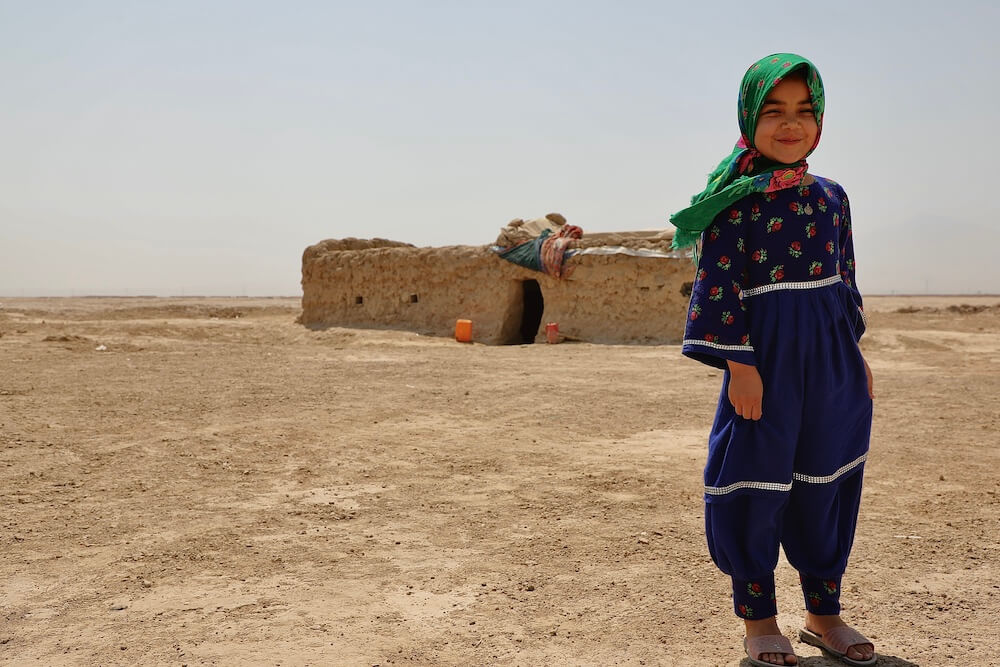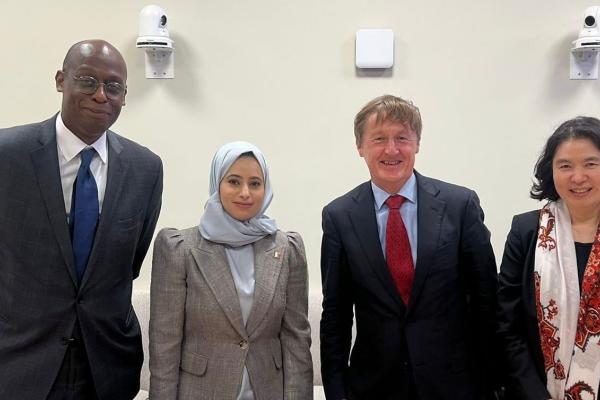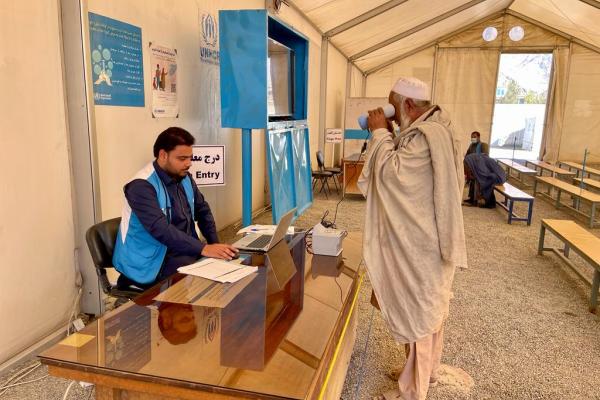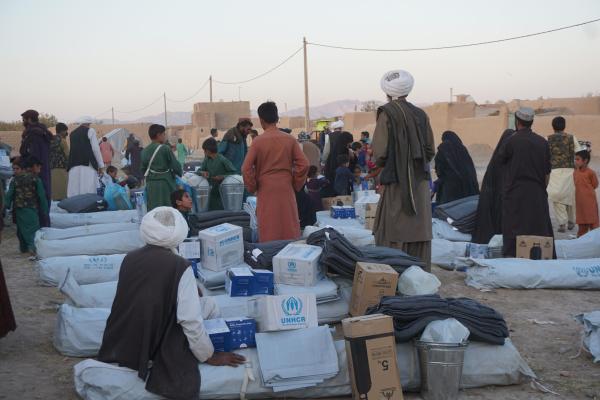-
19 February 2024 | Source: UNHCRUsing biometrics to support cash-based interventions for Afghan returnees Continue reading
-
21 December 2023 | Source: UNHCRDenmark’s Humanitarian Impact on Afghanistan’s Earthquake Aftermath Continue reading
Afghanistan
Afghanistan is one of the world's largest and most severe humanitarian crises. Considering the worsening situation, in 2025, an estimated 22.9 million people – more than half of Afghanistan’s population are projected to require humanitarian assistance. Afghanistan also remains highly susceptible to climate shocks and is among the least prepared countries globally, experiencing extreme weather conditions such as earthquakes, droughts and flooding which compound poverty and loss of livelihoods, ultimately creating triggers for further displacement. The UN and its partners are appealing to the international community not to forget or neglect the people of Afghanistan. Humanitarian partners remain on the ground, and they are delivering assistance and protection inside Afghanistan and in the region, despite the challenges.
A United Nations-wide plan, the 2024 Humanitarian Needs and Response Plan (HNRP) in Afghanistan was launched in 2025 to respond to humanitarian needs inside Afghanistan. The HNRP seeks $2.42 billion for the humanitarian response in Afghanistan, to address the urgent needs of 22.9 million people, with a targeted focus on providing assistance to 16.8 million. The response will prioritize food aid, access to safe drinking water, healthcare, and education, while tackling critical water, sanitation, and hygiene (WASH) challenges. Protecting vulnerable groups, including women, children, and individuals with disabilities, is a key focus. This effort will involve establishing safe spaces, offering legal and psychosocial support, and promoting long-term resilience through various initiatives.

Some 3.22 million people are currently internally displaced by conflict, while over 1.57 million IDPs have returned to their places of origin since 2021. Over 5.82 million Afghans are registered refugees or are in refugee-like situations in the region. UNHCR assists IDPs, refugees, returnees and other vulnerable Afghans through targeted assistance to meet immediate protection needs and to enable sustainable reintegration programmes in their places of origin.
In line with the Solution Strategy, UNHCR facilitates voluntary repatriation for Afghan refugees from Iran, Pakistan and other countries who wish to return to their home country, once it is established that their return is voluntary, safe, dignified and durable. Since 2002, UNHCR has supported the return of nearly 5.3 million refugees to return to Afghanistan including nearly 46,000 refugees and persons in refugee-like situations returned to Afghanistan in 2024 (98% from Pakistan).
The overall returns in 2024 is significantly high if compared to a similar period in 2023 (10,931 refugee returns recorded). The main driver for such an increase is linked to the 3 October 2023 endorsement by Pakistan’s national Apex Committee, of the Illegal Foreigners' Repatriation Plan (IFRP) to repatriate over a million foreigners without valid documents, largely Afghans, requiring them to leave the country by 1 November 2023. In response, UNHCR scaled up its protection and solutions response capacity at border crossing points and in the areas of return in order to identify and assist persons/ families with sensitive protection backgrounds and additional protection needs for a sustainable reintegration.
Refugee returnees are provided with a cash grant USD 375 to help them address their immediate needs including transportation. Besides the cash grant, returning refugees receive basic health care and overnight accommodation when needed in Afghanistan and they may also receive other services provided by partners present at each Encashment Centre (EC).
Those who return often live side by side with vulnerable and affected local communities and internally displaced persons (IDPs). Together they share meagre resources and over-stretched infrastructure, making an area-based approach one of the most effective strategies in a community response. UNHCR implements area-based initiatives to support community stabilization through the provision of basic infrastructure and services.
The Support Platform is helping to build synergies around area-based approaches for solutions, in line with the objectives of the Global Compact on Refugees (GCR).


